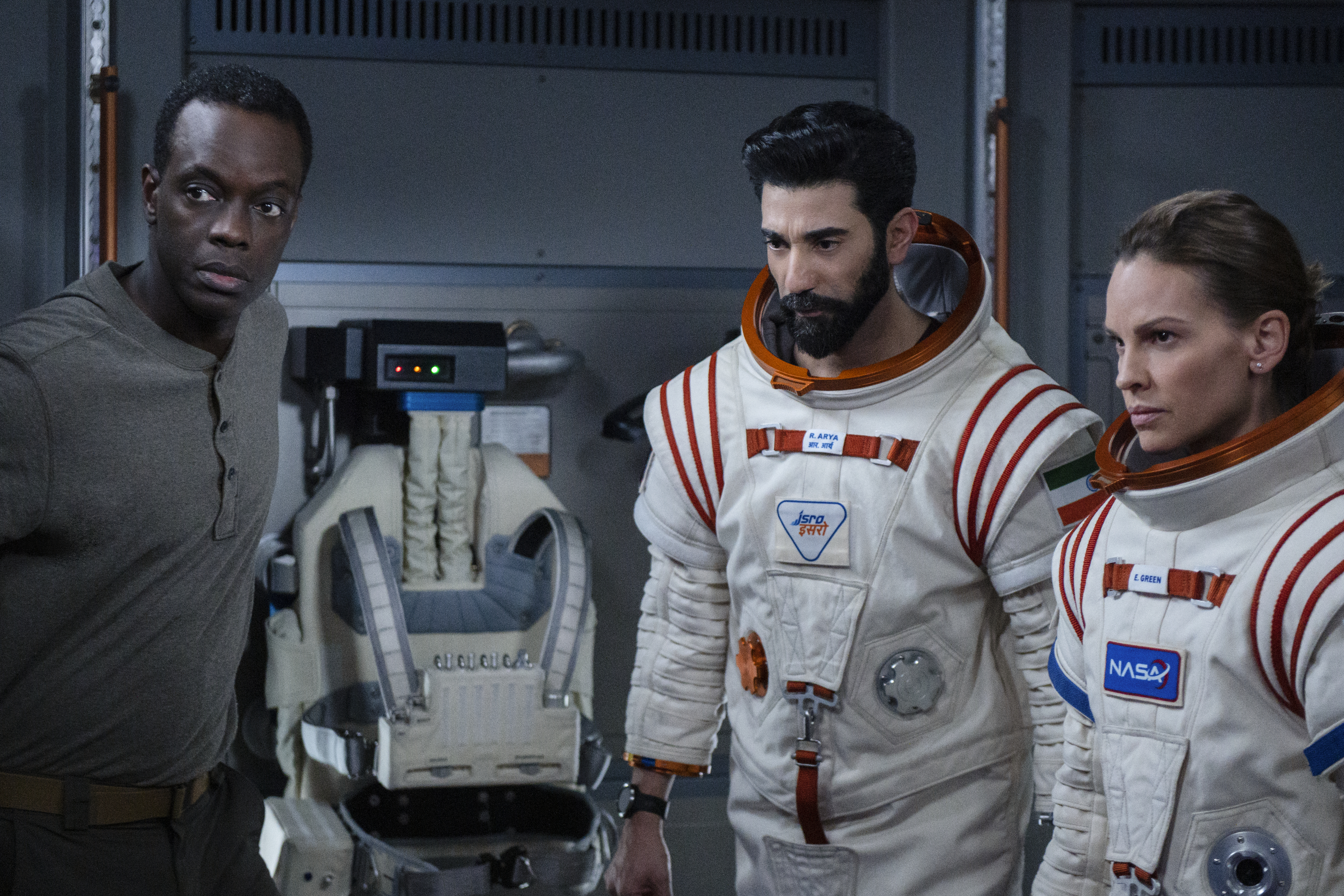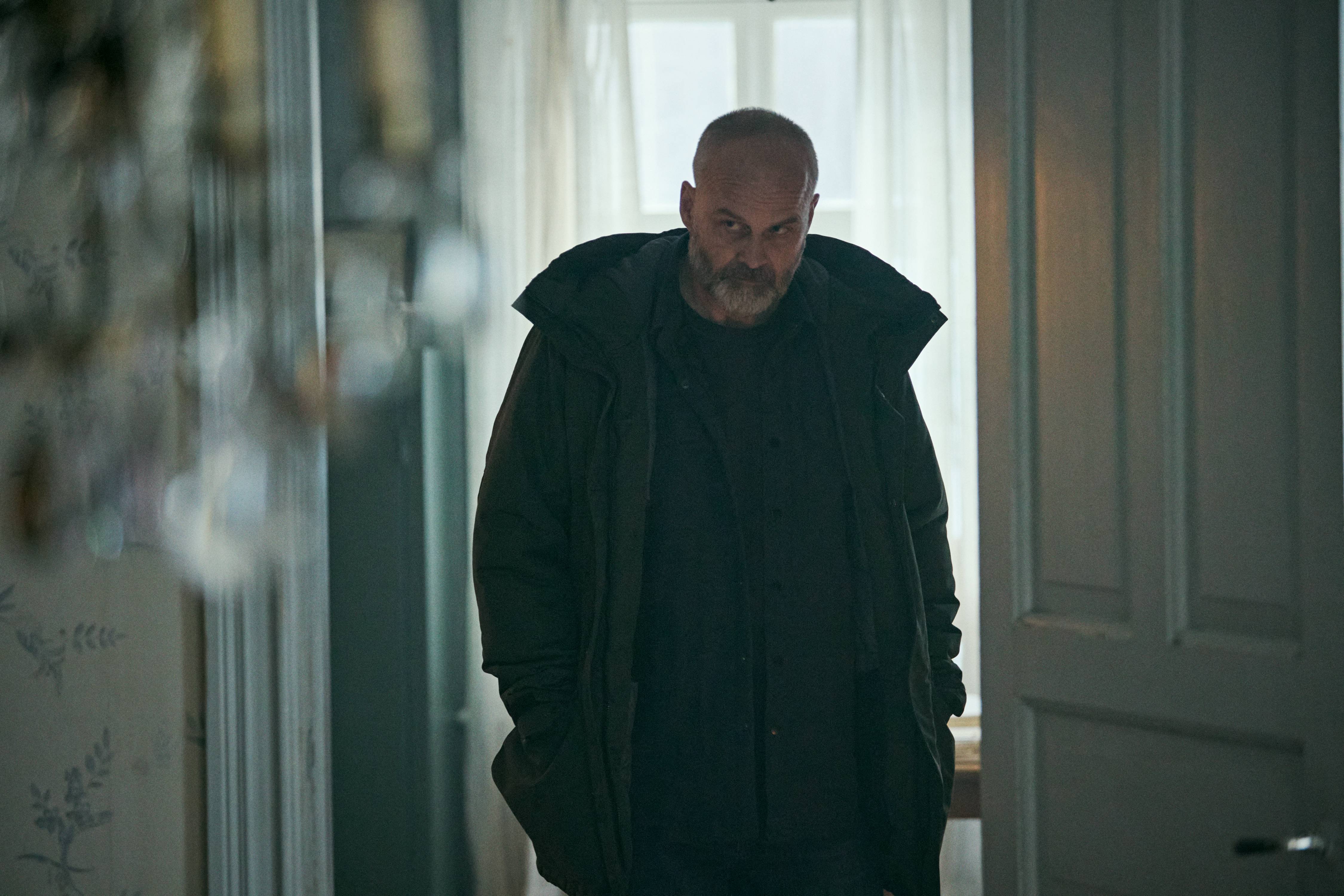What to Watch Verdict
Despite being a solid season of TV, the show’s core suffers from a crisis of identity.
Pros
- +
🚀Great performances from a great cast.
- +
🚀Space effects are well-executed.
- +
🚀Episodic mission crises make for good storytelling.
Cons
- -
🚀Feels like two shows competing for screen time.
- -
🚀The drama on the ground threatens to overshadow the space spectacle.
Much like the mission it portrays, Away is an ambitious undertaking for Netflix. Simulating the weightlessness and spectacle of space is an ordeal for your average movie set, so it takes some serious effort and investment to dedicate an entire ten-episode run to that setting with clear plans to keep the ball rolling for at least another two seasons.
In the absence of meaningful space exploration to collectively unify us in reality, Netflix seems hopeful that this simulacrum of new scientific achievement will be a draw for subscribers in a vacuum of uplifting alternatives. The resulting show certainly works as described on the tin, but it also feels like freshman showrunner Andrew Hinderaker didn’t quite know how to structure the series to make the deepest impact.
Set in an alternate timeline where world governments have their acts together enough to coordinate a joint pursuit for the betterment of all mankind, Away focuses on five astronauts launched on the first human-led mission to Mars. They’re led by Commander Emma Green (Hilary Swank), a stubborn and determined leader who is perpetually plagued by self-doubts as to whether she should have stayed behind with her family. She is accompanied by Dr. Kwesi Weisberg-Abban (Ato Essandoh), an English botanist; Misha Popov (Mark Ivanir), a Russian who has spent more time in space than anyone; Ram Arya (Ray Panthaki), an Indian who acts as Emma’s second-in-command; and Lu Wang (Vivian Wu), a Chinese woman starting to question her loyalty to her government.
An average episode will find the crew encountering some new potentially catastrophic problem over the course of their year-long journey, which is surprisingly episodic for Netflix, Lord of Bingeing. The problem will either literally or thematically relate to one of the crew members’ backstories, which will be shown in liberal flashbacks that give us an idea of who these characters are. Individually, these vignettes are effective in communicating the stakes of deep space exploration while giving the actors plenty of room for melodramatics. Lu has a secret she’s hiding from the crew. Misha has trouble coming to terms with what this trip is doing to him physically. Emma is perpetually guilt-ridden from choosing her career over her family. Tying each of these arcs into a minor mission crisis is a solid narrative choice that allows us to get to know each of these characters just a little bit better.
However, this structure comes with the caveat that it’s difficult to become close to these astronauts until we know more about them. This isn’t much of a problem for Emma and Misha, whose episodes run early and give us the greatest insight. However, Kwesi doesn’t get a moment in the foreground until the fifth episode, with his character portrait only coming together in episode six, just before the show ramps up the stakes so that individual character arcs matter less. Ram probably suffers the worst from pacing, as it seems like the writers don’t really know what to do with him aside from set up a hackneyed plotline about unrequited feelings. In isolation, each of these individual arcs are engaging and meaningful, but they aren’t presented in such a way as to make the season feel like a coherent whole until the final episodes.
This is only further compounded by the show’s running B-plot, which focuses on Emma’s husband Matt (Josh Charles) and teenage daughter Lex (Talitha Bateman) back on Earth. This is where the prescience of the title Away comes into play, as the show is equally concerned with the on-going struggle of those left behind. Matt finds himself with a new disability just as Emma launches into oblivion, and Lex struggles to find solidity and consistency as she comes into young adulthood. In contrast with the episodic nature of the mission crew’s Apollo 13-of-the-week problems, these arcs feel much more in line with Netflix’s usual modus operandi, and once again, the writing and performances are effective and compelling in isolation.
What becomes quickly apparent though, is that this B-plot does not play well with the A-plot in terms of giving the former enough room to breathe. It compounds the issue of not getting to know the individual crew members fast enough when half of every episode is consumed with the trials of those on the ground, which would be fine if that were how the show wanted to present itself. A show about the Earthbound family of a long-term space explorer would be interesting in its own right, but in competing for screen time with the more explicitly eye-catching space catastrophes, it does a disservice to both plot lines, inflating the roles of the white American family to overshadow the varied and multicultural dramas of the disparate crew.
On the whole, this doesn’t keep Away from being a solid ten episodes of entertainment. Swank and Bateman are the engines that keep pushing things along, and their performances shine brightest in a cast of very capable and engaging actors. The space effects are beautiful to behold, and the final stretch of episodes that question whether the mission could possibly ever succeed are tense and enthralling. But the show’s core suffers from a crisis of identity, as two structural schemas battle for attention and ultimately leave the storytelling lopsided in favor of characters who are, by definition, mere observers. Life may go on while those important to us are away, but if that’s the show’s message, it should have committed to telling that story. Here’s hoping that a successive season can bridge the gap between its two distant spheres.
Away will premiere on Netflix on September 4, 2020.
Leigh Monson has been a professional film critic and writer for six years, with bylines at Birth.Movies.Death., SlashFilm and Polygon. Attorney by day, cinephile by night and delicious snack by mid-afternoon, Leigh loves queer cinema and deconstructing genre tropes. If you like insights into recent films and love stupid puns, you can follow them on Twitter.












